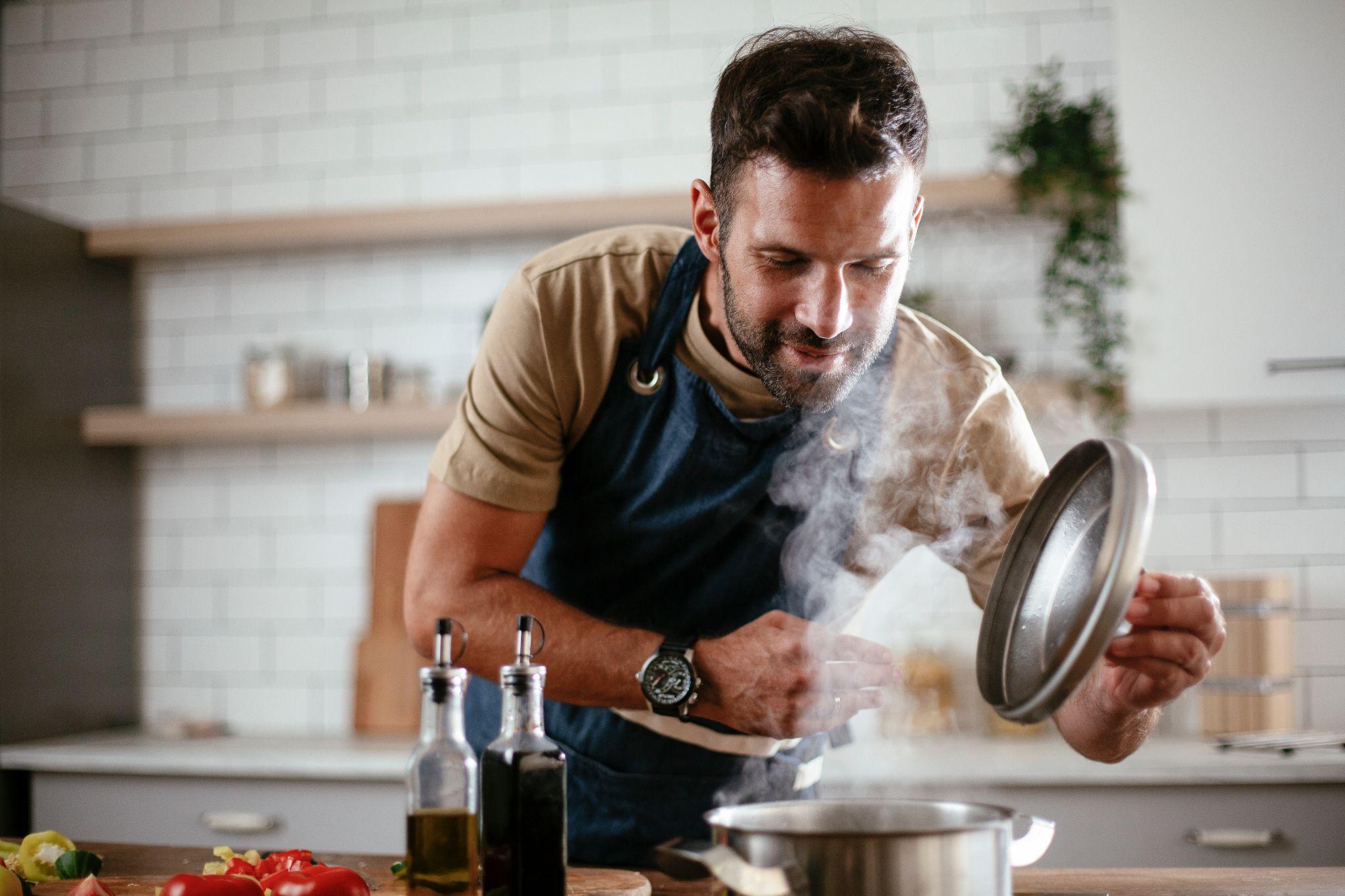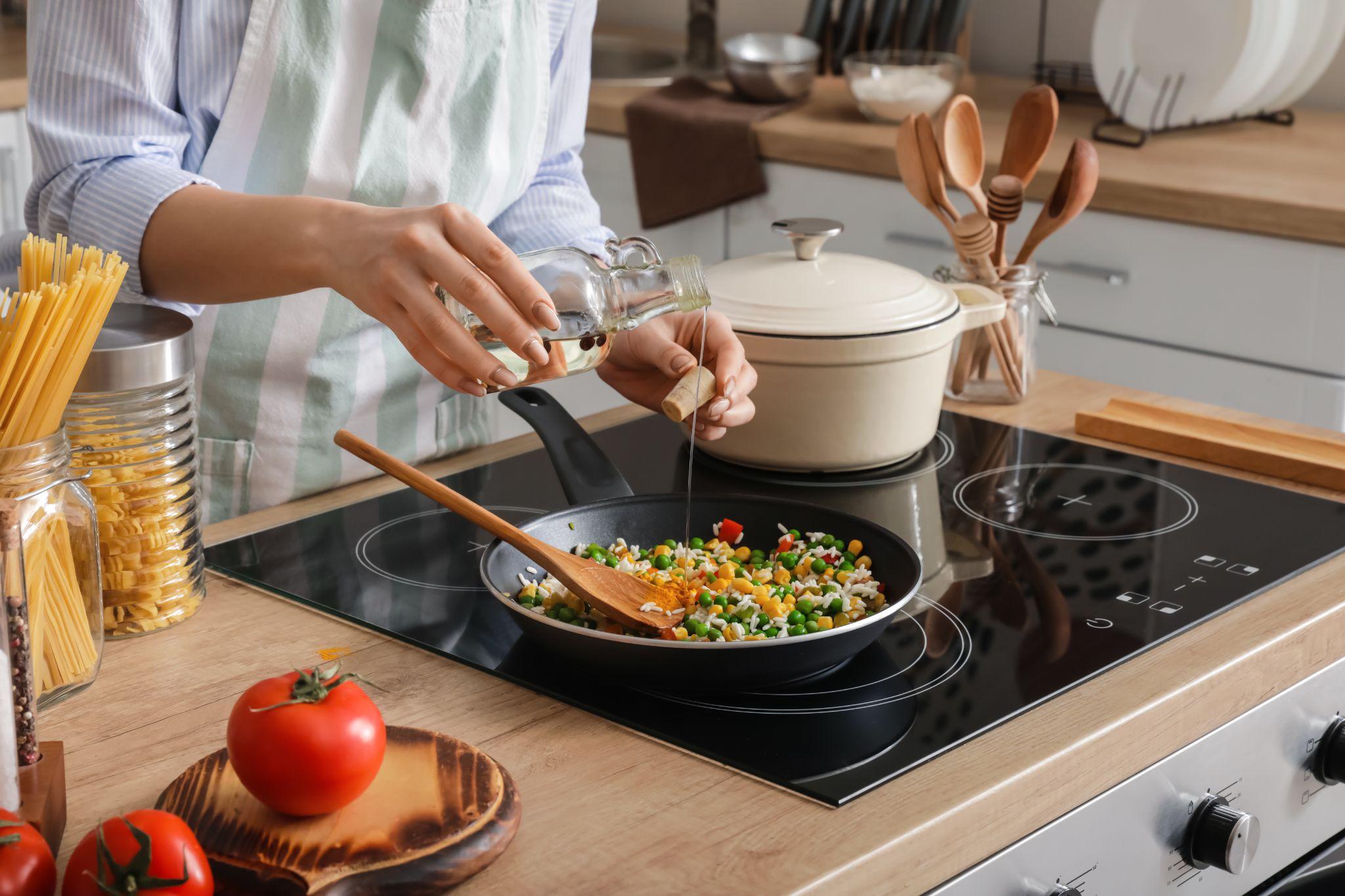Navigating sobriety can be challenging, especially when it comes to avoiding alcohol in unexpected places, such as in food. For those in recovery, understanding the potential risks associated with alcohol in food is crucial to maintaining their sobriety. Below, we’ll explore the impact of alcohol in food on individuals in alcohol addiction recovery and provide guidance on how to manage these risks effectively.
Is Cooked Alcohol Triggering?
Cooking with alcohol is common in many recipes, from savory sauces to decadent desserts. However, even after cooking, not all alcohol evaporates.
Here are some general guidelines:1
- 15 minutes of simmering or baking: Approximately 40% of the alcohol remains.
- 30 minutes of simmering or baking: Approximately 35% of the alcohol remains.
- 1 hour of simmering or baking: Approximately 25% of the alcohol remains.
- 2 hours of simmering or baking: Approximately 10% of the alcohol remains.
- 5 hours of simmering or baking: Approximately 5% of the alcohol remains.
It’s important to note that these guidelines have limitations. Factors such as cooking temperature, the type of cooking method (e.g., open pan vs. closed pot), and the specific type of alcohol used can all affect the amount of alcohol that cooks off.
For some individuals in recovery, even minimal amounts of alcohol can be triggering. The taste or aroma alone may evoke memories of past drinking experiences, potentially leading to cravings or relapse. It’s important to recognize that sensitivity to these triggers varies among individuals. While some may handle a small amount of alcohol without issue, others might find it far too tempting.
Can an Alcoholic Cook With Alcohol?
Many recipes call for alcohol to enhance flavor or create a specific texture. However, those in recovery may wonder, “does cooking with alcohol affect alcoholics?” The answer is yes, it can. Cooking with alcohol can pose risks for those in recovery due to the residual alcohol content and the sensory triggers associated with its presence.
The act of cooking with alcohol may reintroduce the ritualistic aspects of drinking, which can be harmful. Even if the final dish contains minimal alcohol, the process of adding, measuring, and incorporating alcohol can be psychologically triggering. Therefore, it is generally recommended that individuals in recovery avoid cooking with alcohol to maintain their sobriety and reduce the risk of relapse.
However, this is not to say it is impossible for alcoholics to cook with alcohol. If someone is further along in their recovery, feels confident in their restraint, and uses techniques that cook off the majority of the alcohol, it may be something they can consider. Nonetheless, with so many alternative options available, many find it easier to avoid alcohol in food altogether.
Foods You May Not Realize Are Cooked With Alcohol
Alcohol is used in a variety of foods, sometimes in ways that are not immediately obvious.
Common types of foods that often contain alcohol:
- Sauces and Gravies: Many sauces, such as marsala or bordelaise, use wine or other spirits for flavor.
- Desserts: Treats like tiramisu, fruitcakes, and certain chocolates may contain rum, brandy, or other liquors.
- Marinades and Glazes: Alcohol is frequently used in marinades and glazes for meats to tenderize and enhance flavor.
- Stews and Soups: Wine and beer are often added to stews and soups for depth of flavor.
- Breads and Batters: Beer and other spirits can be found in bread recipes and batters for frying.
- Pickled Foods: Some pickling processes use alcohol to help preserve the vegetables.
- Ice Creams and Sorbets: Certain ice cream flavors and sorbets include alcohol to enhance taste and texture.
If you are at someone else’s home or at a restaurant, don’t be afraid to ask if they’ve used alcohol in certain foods. Being open about your situation with loved ones can also help them avoid unintentional triggers in their cooking. If you’re ever unsure about whether a food will be triggering for you, it may be a good idea to simply choose something different.

Alternatives to Cooking With Alcohol
For those looking to avoid alcohol in cooking, there are plenty of alternatives that can provide similar flavors and textures.
Here are a few ideas:
- Broths and Stocks: Use chicken, beef, or vegetable broth as a substitute for wine or beer in savory dishes.
- Fruit Juices: Apple juice, grape juice, and orange juice can replace alcohol in marinades and sauces.
- Vinegars: Balsamic, apple cider, or rice vinegar can mimic the acidity of wine in recipes.
- Herbs and Spices: Enhance flavors with fresh herbs, garlic, ginger, and other spices instead of alcohol.
- Non-Alcoholic Wines and Beers: These can be used as direct substitutes in recipes calling for alcoholic versions. However, if there’s a chance that the flavor alone will be triggering, you should probably try a different option.
- Citrus Zest and Juice: Lemon or lime zest and juice can add bright, acidic notes to dishes without the use of alcohol.
- Tomato Paste and Purees: These can add depth and richness to dishes, providing a robust flavor without alcohol.
Lumina Recovery Offers Powerful Support for Sobriety
Maintaining sobriety requires a supportive environment and access to comprehensive resources. Lumina Recovery offers support for those in alcohol recovery through various services, like our outpatient and telehealth programs.
Our outpatient programs provide flexible treatment options, allowing individuals to continue their daily lives while receiving necessary support. These programs help patients develop coping strategies and build a strong support network. For those who prefer remote care, our telehealth programs allow individuals to access counseling and support from the comfort of their homes, making it easier to stay on track with their recovery goals.
Understanding the potential risks associated with alcohol in food and making informed choices can significantly contribute to a successful recovery journey. Whether it’s finding suitable cooking alternatives or seeking support from our professional programs, there are many ways to navigate sobriety effectively.
If you or a loved one is dealing with alcohol addiction, contact Lumina Recovery today for compassionate and comprehensive care.
Sources:



